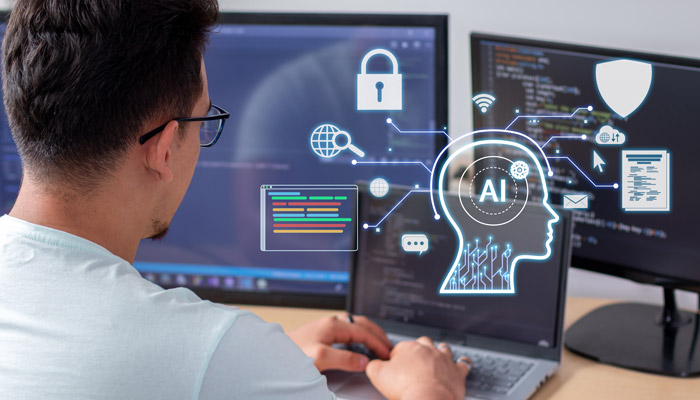One of the many areas where artificial intelligence has made its way into our lives is education and related development processes. So how can artificial intelligence support us in education and development programs?
Here are some examples:
- Personalization of learning content: Artificial intelligence can provide a personalized learning experience by determining the educational content based on students’ learning styles, interests, and needs.
- Marked assessment: Artificial intelligence can be used to assess learning materials and provide feedback. It can analyze the work submitted by students, mark errors, and provide recommendations.
- Virtual teacher and mentor: Through live chat or video interactions, artificial intelligence can take on the role of a teacher or mentor, answering students’ questions, explaining topics, and providing guidance.
- Quick search and information access: As an artificial intelligence-powered search engine, it can provide users with fast and accurate results. Students can benefit from an artificial intelligence model like ChatGPT when searching for course materials or answering questions.
- Student performance analysis: Artificial intelligence can monitor student performance and identify their strengths and weaknesses. This information can be used to provide more suitable and effective support to students.
In conclusion, artificial intelligence can support education and development programs, making the learning experience more effective and personalized.
When we look at the advantages of this process for us:
- Personalized Learning: Artificial intelligence can provide a personalized learning experience by considering each student’s learning styles, strengths, and weaknesses. Instructional programs and materials can be adapted based on students’ needs and interests.
- Instant Feedback: Artificial intelligence can accelerate students’ progress by providing instant feedback. It can identify errors in the learning process, encourage correct answers, and track students’ performance.
- Teacher Support: Artificial intelligence can assist teachers in providing individual support to more students. Teachers can use artificial intelligence to monitor students’ progress, provide recommendations based on their needs, and spend more individual study time with students.
- Increased Student Engagement and Motivation: AI-based education programs can make learning more interactive and enjoyable for students. By using gamification elements, competitions, and rewards, they can attract students’ interest.
- Data Analysis and Prediction: The use of artificial intelligence can analyze large volumes of data to evaluate the effectiveness of education and development programs. By analyzing data such as student achievements, learning trends, and the effectiveness of teaching methods, it can make predictions about future success and provide recommendations for program improvements.
Artificial intelligence offers many opportunities to provide more efficient and effective learning experiences in education and development programs. However, attention should also be given to ethical and privacy concerns associated with the use of this technology.







